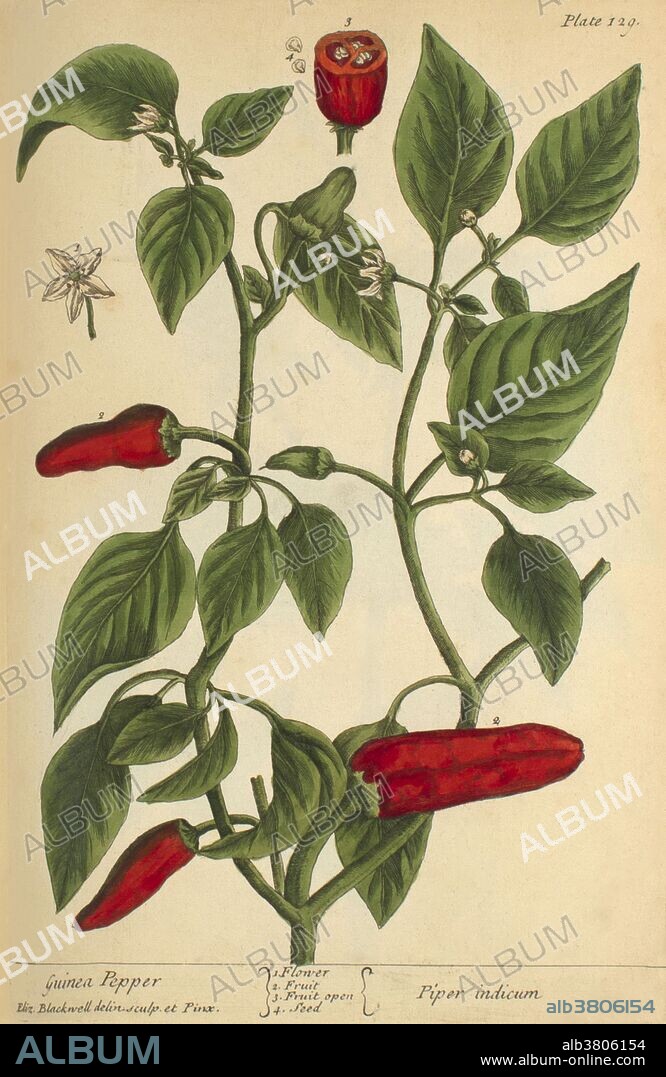alb3806154
Guinea Pepper, Medicinal Plant, 1737

|
Add to another lightbox |
|
Add to another lightbox |



Title:
Guinea Pepper, Medicinal Plant, 1737
Caption:
"A Curious Herbal", Plate 129. Hot peppers originated in the Americas, and were introduced to Europe in 1493 by a physician on Christopher Columbus's voyage. Blackwell lists among their uses: expelling a dead foetus, a gargle for toothache, and "as a sauce for any thing that is flatulent and windy." Guinea pepper (Aframomum melegueta) is a species in the ginger family, Zingiberaceae. This spice, commonly known as grains of paradise, melegueta pepper, alligator pepper, Guinea grains, or fom wisa, is obtained from the ground seeds; it gives a pungent, peppery flavor with hints of citrus. The medicinal uses include aphrodisiac, measles, and leprosy, taken for excessive lactation and postpartem hemorrhage, purgative, galactogogue and anthelmintic, and hemostatic agent. It is used against intestinal infections, infestations, to calm indigestion and heartburn. The seeds of Aframomum melegueta possess potent anti-inflammatory activity with a favorable gastric tolerability profile. Elizabeth Blackwell (1707-1758) was a famed Scottish illustrator and author who was best known as both the artist and engraver for the plates of "A Curious Herbal" (1737).
Credit:
Album / NLM/Science Source
Releases:
Model: No - Property: No
Rights questions?
Rights questions?
Image size:
2700 x 4153 px | 32.1 MB
Print size:
22.9 x 35.2 cm | 9.0 x 13.8 in (300 dpi)
Keywords:
1737 • 18TH CENTURY • 18TH CENTURY, THE • 18TH • AFRAMOMUM MELEGUETA • ALLIGATOR PEPPER • ART • ARTIST • ARTISTE • ARTWORK • BLACKWELL • BOTANICAL • BOTANY • BOTANY • BOTANY • CURIOUS HERBAL • DIAGRAM • DRAWING • ELIZABETH BLACKWELL • ENGRAVING • FOM WISA • GINGER FAMILY • GRAINS OF PARADISE • GUINEA GRAINS • GUINEA PEPPER • HERBAL • HISTORIC • HISTORICAL • HISTORY • ILLUSTRATION • ILLUSTRATOR • MEDICAL • MEDICINAL • MEDICINE • MELEGUETA PEPPER • PLANT • PLANTA • PLANTAE • PLANTS • SCIENCE • SPICE • SPICES • ZINGIBERACEAE
 Pinterest
Pinterest Twitter
Twitter Facebook
Facebook Copy link
Copy link Email
Email

